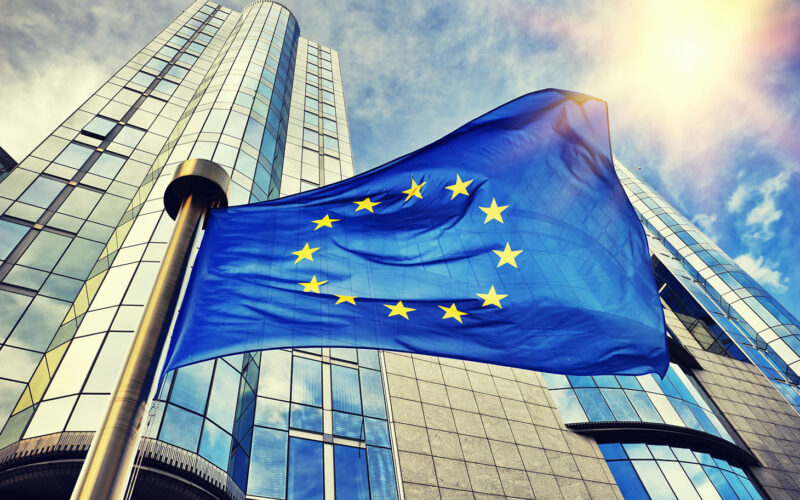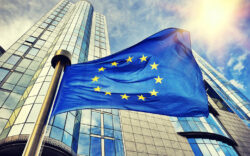In today’s issue:
- Europe’s new divide
- Why tech companies are swarming to the Nordic Arctic Circle
- Ten years to save the… South?
In the early 1900s, historian Max Weber famously hypothesised that the Protestant work ethic fostered modern economic development.
Writing in The Protestant Ethic and the Spirit of Capitalism, Weber discussed the socio-economic and religious roots of modern capitalism – and of our productivity-focused culture.
He argued that the Protestant Reformation, a 16th-century European religious movement, changed how people lived, worked, and used their money.
It was this, he said, that set North/West Europe apart from the rest of the world.
But could there have been a simpler, less prosaic reason at play? Could the reason for any disparities in productivity actually have been caused by… the weather?
After all, it’s easier to work hard in the cold. The presence of grass lands for sheep and, later, coal, helped fund the Industrial Revolution, that much is certain.
If geography is destiny, then, what does it mean if the geography is changing?
Case in point: today, in the south of Europe, Greece burns. Temperatures in Greece were recorded above 40 degrees centigrade for 14 consecutive days last month, while 25m-high walls of flames have reached the edge of ancient Athens.
The CPM, an EU initiative to share disaster resources like specialist planes and firefighting equipment, has been activated 29 times this year already – a new record that’s more than double 2020’s figure and already and above the 23 instances in the full year of 2023.
The trend is clear: natural disasters are on the rise.
Meanwhile, in the cooler north of Europe, Big Tech companies are scrambling to build data centres in areas near the Arctic Circle.
Meta, for instance, is building a hi-tech, power-hungry hub in Luleå, northern Sweden, the site of Facebook’s first datacentre outside the US.
Tech firms are attracted to the area because of its vast surplus of zero carbon hydroelectric power. Sweden produces more than twice as much hydro and wind power as it consumes each year, making it cheap as well as clean – the perfect combination for climate-conscious power-hungry global tech firms.
But the differences don’t stop there.
In Norway, 92% of cars sold in July were electric. In Italy, it was just 4%. Sweden produces a renewable energy surplus every year, because of all its hydropower. In Italy, less than 10% of their power comes from zero carbon sources.
For investors concerned about the physical risk of climate change to their investments, the wine industry is showing the way. They are “short” the south and “long” the north, selling up in Spain to buy vineyards in the UK.
This divergence between a burning South and a booming North is a physical and economic concern, and, therefore, a political and social one too.
This is especially true as right-wing populist parties opposed to climate action are gaining power and popularity across the European continent.
To recap, European Parliament elections earlier this summer saw a rightward turn. This was a big blow for green climate policies, especially as the climate is changing the face of the continent.
Geography is destiny, after all, and at this rate climate change is going to drive a wedge between the north and south of Europe.
I love the EU and everything it stands for, but with climate risk growing too, these fears can’t be discounted.
Politics, bond markets and climate change are now intertwined
My colleague Nick Hubble also sees climate change, politics and the bond markets combining in difficult ways.
In the late-2010s, Nick Hubble wrote extensively about Italy, its debt problems and its bond markets, predicting its crisis with incredible accuracy. Nick, it needs to be said, is a eurosceptic because he thinks the currency links holding the European project together are fragile: 27 different economies having a single monetary policy is a hard thing to maintain.
But Nick and I share the belief that the next decade will be crucial for how the second half of this century goes.
From my perspective, solar, wind, batteries and electric vehicles are growing at incredible rates, driven by their falling costs and improving technological advantages over their fossil-fuel equivalents. The rate of change is already much faster than most people realise – but with the right political tailwind even more would be possible. (If you missed it, you can catch up on my thoughts on green tech with my recent chat with Nick over here.)
The rate of natural disasters is increasing rapidly, as we’ve seen. It will get worse before it gets better, and the investments we make today could change the outcomes for millions of people, and trillions of dollars of wealth.
I wouldn’t often cite Liz Truss, but certainly her book title 10 Years to Save the West – which reeks of self-importance from a 45-day prime minister – might be better applied to the European climate divergence: Ten Years to Save the South.
The next decade will be crucial to how we solve the European climate divergence, that’s for certain.
As for Nick, he thinks Labour’s net zero ambitions could be the trigger for a financial calamity right here in this country, too.
Although I’m hopeful that the new Labour government will do better than its predecessor when it comes to driving through pro-climate policies and reforms, Nick says that it won’t be Keir Starmer pushing this through, but a more secretive figure.
Not Sue Gray, or Rachel Reeves, but someone he finds far more sinister… someone Liz Truss pointed the finger directly at for what happened during her record-breakingly short premiership.
The organisation behind this person was responsible for plenty of chaos in Southern Europe – but with more impact on the bond markets than the climate.
Nick was incredibly prescient about that Italian bond market crisis of 2018, much to his subscribers’ benefit.
Is he right again this time?
Click here to see what he believes is coming for the UK.
Until next time,

James Allen
Contributing Editor, Fortune & Freedom



